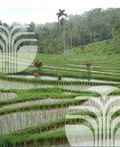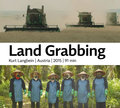
|
Standard Bank backs blueberry farming with N$40 million investment
|
|
15 FEB 2017
Puteaux (Paris)
|
Les Gabonais de France organisent ce 15 février un sit-in devant la tour de Bolloré !
Même s’il n’apparaît qu’au second plan, Bolloré est un des actionnaires majeurs de Socfinal, un groupe qui exploite parmi les plus grands domaines de plantation d’Afrique. Les Gabonais de France
|
|
20 DEC 2016
Bruxelles
|
la Belgique complice d’accaparements de terres et de violation des droits de l’homme ?
SOS Faim
|
|
07 DEC 2016
Brussels
|
Access to land for farmers in the EU
Event brings together farmers, NGOs, researchers, politicians and regulatory bodies from different European countries. EU Parliament
|
|
19 OCT 2016
Brussels
|
Sowing the seeds of impact: the EIB approach to agribusiness in Africa
EIB
|
|
19 SEP 2016
Kiev
|
VII Large Farm Management Conference
The main purpose of the event is to facilitate the exchange of ideas among leading European experts regarding the potential of global agriculture development, supply chain optimization strategies and public policy improvements. |
|
13 SEP 2016
Tokyo
|
Global AgInvesting Asia
Global AgInvesting Asia will forge the pathway between Japan's institutional wealth and the global agricultural investing market. Global AgInvesting
|
|
06 JUL 2016
New York
|
Executive training program on sustainable investments in agriculture
Columbia Center on Sustainable Investment (CCSI) executive training program on international investments in agriculture CCSI
|
|
14 JUN 2016
London
|
Agrimoney Investment Forum
For investors and agribusiness companies looking to raise capital, deploy funding and generate returns within the agrisector. Agrimoney
|
|
26 APR 2016
Bruxelles
|
Projection du film Land Grabbing
Les terres arables mondiales sont en danger. La demande de terrain exploitable croît de façon exponentielle, les investisseurs cherchant des champs pour cultiver des denrées à exporter et, au lieu de cultiver la nourriture pour la région, les terres agricoles sont utilisées pour la production à grande échelle destinés aux marchés occidentaux. En conséquence, de vastes étendues de terres agricoles en Asie, en Afrique et même en Europe tombent entre les mains des investisseurs internationaux. Le film Land Grabbing explore de l'intérieur le monde des investisseurs agroalimentaires mondiaux, ainsi que le rôle des politiques européennes dans ce domaine. Land Grabbing présente des témoignages partout dans le monde au sujet de cette pratique commerciale et le pouvoir de l'argent, qui l'emporte sur les besoins des communautés locales. La projection du film documentaire sera suivie d'une discussion avec des experts et défenseurs en première ligne des droits de l'homme: - Gaelle Dusepulchre, Fidh - Tatiana Villacieros, Protection International - Tonico Benites, Guarani-Kaiowá (Brasil), Front Line Defenders - Modératrice: Paige Morrow, Frank Bold Réservation obligatoire:http:/http://www.oneworld.cz/2016/brussel-registration/12 La projection et débat aura lieu dans le cadre du One World Film Festival. Où: Representation Permanente République Tchèque. Rue Caroly 15 1050 Ixelles Mardi 26 avril 2016 de 19:00 à 21:30 One World Film Festival
|
|
31 MAR 2016
Valencia
|
World Forum on Access to Land
A Global Forum to discuss unequal access to land and natural resources and their effects and react against the eviction of peasants, family fishermen and forest communities in the world. AGTER and CERAI
|
Who's involved?
Carbon land deals
Languages
- Amharic
- Bahasa Indonesia
- Català
- Dansk
- Deutsch
- English
- Español
- français
- Italiano
- Kurdish
- Malagasy
- Nederlands
- Português
- Suomi
- Svenska
- Türkçe
- العربي
- 日本語
Special content
Archives
Latest posts
-

KKR acquires ProTen from Aware Super
- Business Wire
- 01 July 2025





















